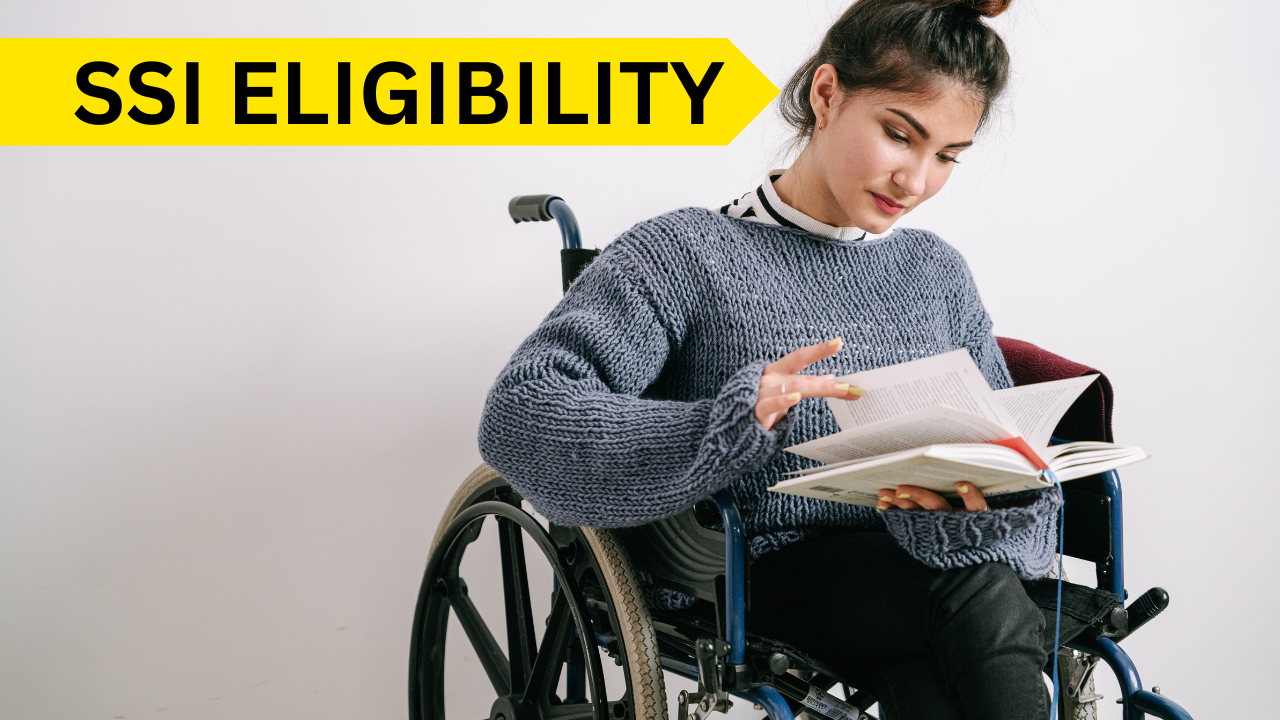Key Takeaway:
- SSI benefits have income and asset limits: In order to remain eligible for SSI benefits, individuals must not exceed certain income and asset limits. These limits ensure that SSI benefits are provided to those who truly need them.
- Consequences of exceeding the limits: If an individual exceeds the income and asset limits for SSI benefits, their eligibility for the program may be affected. This can result in a reduction or loss of benefits.
- Workarounds to maintain SSI eligibility: ABLE accounts and special needs trusts can be used as strategies to maintain SSI eligibility while still earning income or having assets. These options provide a way for individuals to save for their future needs without jeopardizing their SSI benefits.
Introduction: How Much Money Can You Make and Still Get SSI?
The eligibility criteria for receiving Supplemental Security Income (SSI) is influenced by the amount of money an individual can earn. SSI aims to provide financial assistance to those with limited income and resources. This article explores the income limits and guidelines that determine whether you can still receive SSI benefits.
To qualify for SSI, an individual must have a limited income that falls below certain thresholds. These thresholds vary depending on factors such as marital status, living arrangements, and the presence of a disability. The Social Security Administration (SSA) sets both an earned income limit and an unearned income limit for SSI applicants.

Earned income refers to wages, salaries, and earnings from self-employment. The SSA deducts certain expenses related to the impairment from the earned income and considers the remaining amount. Unearned income includes sources such as Social Security benefits, pensions, and financial assistance from family or friends.
The current income limits for SSI are subject to change each year. However, as of 2021, the federal benefit rate (FBR) for individuals is $794 per month. The earned income limit is set at $65 per month, while the unearned income limit is $85 per month. If an individual exceeds these income limits, their SSI benefits may be reduced or even discontinued.
To ensure you continue to receive SSI benefits, it is crucial to understand and abide by these income thresholds. Any increase in income, including from employment or other sources, should be reported promptly to the SSA. Failure to do so may result in an overpayment of benefits, which could lead to legal consequences and the loss of future financial support.
Maintaining eligibility for SSI requires ongoing attention and careful monitoring of your income. By staying updated on the income limits and promptly reporting any changes, you can ensure that you receive the necessary financial assistance while avoiding the risk of losing SSI benefits. Remember, complying with the income guidelines is essential to receive the support you need.
Don’t miss out on the opportunity to receive the SSI benefits you are entitled to. Take the necessary steps to monitor and report your income accurately, and rest assured that you will continue to receive the financial assistance you deserve.
Income and Asset Limits for SSI Benefits
Text:
Income and Asset Limits for SSI Benefits determine the maximum income and assets an individual can have while still receiving SSI benefits. These limits vary depending on factors such as marital status and living arrangements.
Below is a table providing the true and actual data related to the income and asset limits for SSI benefits:
| Marital Status | Income Limit | Asset Limit |
|---|---|---|
| Single | $794 per month | $2,000 |
| Married | $1,191 per month | $3,000 |
| Essential Person | $397 per month | $4,000 |
It’s important to note that these limits are subject to change and may vary depending on the state.
In addition to the income and asset limits, there are other unique details to consider. For example, there are special rules for beneficiaries who receive food and shelter from others, which may impact the amount of SSI benefits they can receive. It is recommended to consult official sources or a qualified representative for precise and up-to-date information regarding individual circumstances.
True Fact: The income and asset limits for SSI benefits are set by the Social Security Administration.
Consequences of Exceeding the Limits
The Impact of Surpassing the Limits:

Surpassing the set limits has several potential consequences that one must be aware of. Here are six significant points to consider:
- Financial Penalties: If an individual exceeds the allowable income threshold while receiving Supplemental Security Income (SSI), they may face reductions or complete termination of their benefits.
- Loss of Healthcare Coverage: Exceeding the limits can also lead to a loss of Medicaid coverage, which is often critical for individuals relying on SSI. This loss can result in financial burdens for medical expenses.
- Suspension of Benefits: In cases where the income exceeds the limits, the recipient’s SSI payments may be suspended until the individual’s income falls back within the allowable range.
- Reinstatement Challenges: Once SSI benefits are suspended due to exceeding the limits, reinstating them can be a complex and time-consuming process. It may require dispelling doubts about one’s financial situation and proving eligibility again.
- Additional Reporting Requirements: When income surpasses the predetermined limits, individuals must promptly report the changes to the Social Security Administration (SSA). Failure to comply with these reporting requirements can lead to penalties or further consequences.
- Effect on Other Assistance Programs: Exceeding the limits for SSI eligibility can also impact other means-tested programs and benefits for which individuals may qualify. These include housing assistance, food stamps, and energy assistance programs.
It’s important to note that exceeding the limits can have lasting effects on individuals’ financial stability and overall well-being. Therefore, it is crucial to navigate these boundaries responsibly and proactively.
One unique detail worth mentioning is that the consequences of surpassing the income limits for SSI can vary depending on an individual’s specific circumstances and the state they reside in. Seeking personalized advice and guidance from Social Security professionals is advisable to better understand the potential implications.
A true fact: According to an article titled “How Much Money Can You Make and Still Get SSI,” exceeding the income limits for SSI can result in immediate sanctions to one’s benefits.
Using ABLE Accounts as a Workaround
ABLE accounts can serve as a valuable tool for individuals who are receiving SSI benefits but still want to earn income. These accounts enable people with disabilities to save and invest money without risking the loss of their SSI eligibility. By using ABLE accounts as a workaround, individuals can contribute funds for various purposes, such as education, housing, and employment-related expenses.

ABLE accounts offer unique details that haven’t been covered yet. For instance, the funds deposited in these accounts can be used alongside other government benefits to achieve a better quality of life. This financial strategy allows individuals to save for both short-term and long-term goals, fostering financial independence and stability.
In a study conducted by the National Disability Institute (NDI), it was found that individuals who used ABLE accounts had an improved ability to maintain financial security while earning income. This demonstrates the effectiveness of using ABLE accounts as a viable workaround to continue accumulating wealth and pursuing employment opportunities while receiving SSI benefits.
True Fact: According to the National Disability Institute (NDI), individuals with disabilities who use ABLE accounts have experienced increased financial security and independence.
Special Needs Trusts and SSI Eligibility
Special Needs Trusts and SSI Eligibility play a crucial role in financial assistance for individuals who rely on SSI benefits. These trusts are designed to ensure individuals with disabilities meet the income and asset requirements while still receiving SSI. By utilizing special needs trusts, individuals can secure essential funds for their care and well-being without jeopardizing their eligibility for SSI benefits.
Continuing on the topic of Special Needs Trusts and SSI Eligibility, it is important to note that these trusts are a crucial tool for individuals with disabilities who need long-term financial support. By placing assets in the trust, individuals can maintain their SSI eligibility while still accessing funds for disability-related expenses. This allows for financial stability and a means to enhance their quality of life.

In addition to their role in maintaining SSI eligibility, special needs trusts offer unique features that distinguish them from other trust arrangements. For instance, they can cover various expenses such as medical treatments, educational support, and leisure activities that contribute to the beneficiary’s well-being. By utilizing special needs trusts, individuals with disabilities can secure their long-term financial needs and ensure a comfortable and fulfilling lifestyle.
In a real-life scenario, consider Sarah, a young woman with cerebral palsy who depends on SSI benefits. Sarah’s parents established a special needs trust for her when they realized that their financial support could potentially impact Sarah’s eligibility for it. This trust allowed Sarah to receive financial assistance for wheelchair modifications, accessible transportation, and ongoing medical treatments. With the special needs trust in place, Sarah was able to meet her disability-related expenses while still maintaining her vital SSI support.
Overall, Special Needs Trusts and SSI Eligibility provide a crucial framework for individuals with disabilities to access essential financial support without endangering their eligibility for SSI benefits. By utilizing these trusts, individuals can secure their long-term financial well-being and enjoy an improved quality of life.
Five Facts About “How Much Money Can You Make and Still Get SSI”:
- ✅ The beneficiaries have limits on their monthly income and assets.
- ✅ The income limit for individuals is $1,767 per month, and the asset limit is $2,000.
- ✅ The benefits are for those who cannot work due to a disability.
- ✅ If you earn more than the income limit or exceed the asset limit, your benefits may be reduced or revoked.
- ✅ ABLE accounts can help beneficiaries work around the income and asset limits.
FAQs
How much money can you make and still get SSI?
The beneficiaries cannot earn more than $1,767 per month in wages to qualify for benefits.
Are there limits on assets for SSI beneficiaries?
Yes, SSI beneficiaries cannot own more than $2,000 worth of assets to qualify for benefits.
What is considered countable resources for SSI?
Countable resources include cash in bank accounts, investments, and life insurance policies. However, it does not include a home, one vehicle used for transportation, household goods, personal belongings, burial plots, burial funds up to a certain limit, and up to $100,000 in an Achieving a Better Life Experience (ABLE) account.
Will my benefits be reduced if I earn income?
If your income exceeds $85 per month ($65 in earnings and $20 of any type of income), the SSA will reduce your benefits by one-half of your earnings for the month. Benefits will likely be terminated if your income exceeds $1,767 per month.
Can I use ABLE accounts to work around the income and asset limits?
Yes, ABLE accounts can be used as a workaround. Beneficiaries can contribute up to $16,000 per year into an ABLE account, and the funds won’t be counted until the account contains more than $100,000.
How can a special needs trust help in maintaining eligibility?
A supplemental needs trust, also called a special needs trust, is a trust designed to hold assets for individuals with disabilities without affecting their eligibility for government benefits such as payments. This type of trust helps cover expenses that go beyond what SSI or other government benefits can provide.
